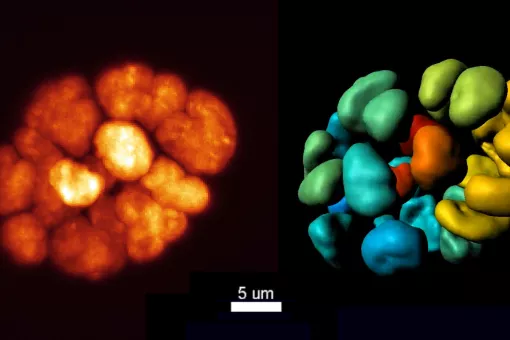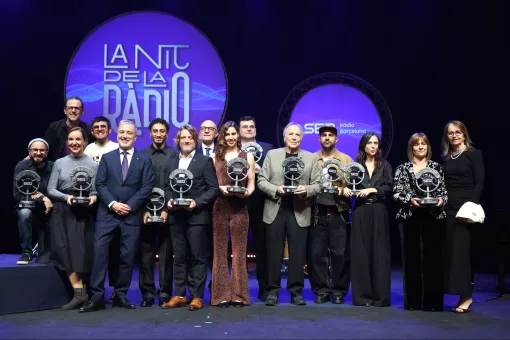Images
IRB Barcelona and the BBVA Foundation bring together international leaders in Barcelona to address the repair of DNA damage.
Most types of cancer are treated with high levels of radiation and toxic drugs that cause irreparable DNA damage to cells, which finally kills them. The major problem is that some cancer cells survive, they have the capacity to regenerate the tumor and they acquire resistance. Furthermore, the high toxicity of the strategies used causes serious side effects in patients. One of the challenges in this field is to design drugs that respond to DNA damage only in tumor cells, without affecting healthy ones, thus achieving greater treatment efficiency against the tumor with fewer side effects.
Basic research into DNA damage has produced highly valuable information and has led to the generation of animal models that reproduce several human diseases. These advances hold the promise to promote new and better drugs for clinical practice. The field of DNA damage and its association with human diseases will be the main topic addressed in the next Barcelona Biomed Conference, which IRB Barcelona and the BBVA Foundation will hold at the Institut d’Estudis Catalans in Barcelona on 28, 29 and 30 May. These conferences are co-organised by IRB Barcelona researchers jointly with scientists from major biomedical centres worldwide. This month’s event will be the 18th conference since the series started in 2006 thanks to the support of the BBVA Foundation.
The organizers of this conference, Travis Stracker, from IRB Barcelona, and John J. Petrini, from the Memorial Sloan Kettering Cancer Center (MSKCC) in New York, have invited 26 researchers from reference centres in the field of DNA repair worldwide. In a think-tank atmosphere, the main breakthroughs and future challenges will be debated in front of an audience comprising 150 local scientists.
Alterations in proteins responsible for DNA repair cause dozens of human conditions. In addition to those that occur in cancer, which are best known by the general public, such as the relation between mutations in the BRCA1 and BRCA2 genes and breast cancer, there are other alterations that cause extreme sensitivity to light, while others induce infertility, dwarfism, microcephalies, early ageing and rare diseases like ataxias and Fanconi anemia, among other kinds of extremely complex hereditary disorders.
Presence of scientists of international standing
The programme includes scientists from MSKCC, the Yale University School of Medicine of London, the Harvard Medical School of Boston, the Scripps Research Institute of the United States, and the Netherlands Cancer Institute of Utrech. These invited speakers will present their studies, together with researchers from CNIO, the Vall d’Hebron Research Institute, the Autonomous University of Barcelona and the Andalusian Molecular Biology Centre.
Special mention is given to work by John H. Petrini, from MSKCC in New York, who will present new data on mutations that affect the development of the central nervous system. Also of interest are studies by Ketan J. Patel, from the Medical Research Council Laboratory of London, who, in 2011, published research in Nature about the function of two DNA repair processes that prevent alcohol from causing irreversible DNA mutations in the developing fetus and in adult cells. Furthermore, thanks to the same study, J. Patel provided highly valuable data to better understand Fanconi anemia, a condition characterized by the mutation of genes in these two repair pathways and causing high susceptibility to cancer. And finally, we highlight Oskar Fernández Capetillo, from CNIO, who has generated a mouse model in the lab to study human dwarfism and microencephalies. He has also developed some protein kinase inhibitors that could be used to treat cancer.
Web Barcelona Biomed Conference: DNA damage response in human disease
About IRB Barcelona
The Institute for Research in Biomedicine (IRB Barcelona) pursues a society free of disease. To this end, it conducts multidisciplinary research of excellence to cure cancer and other diseases linked to ageing. It establishes technology transfer agreements with the pharmaceutical industry and major hospitals to bring research results closer to society, and organises a range of science outreach activities to engage the public in an open dialogue. IRB Barcelona is an international centre that hosts 400 researchers and more than 30 nationalities. Recognised as a Severo Ochoa Centre of Excellence since 2011, IRB Barcelona is a CERCA centre and member of the Barcelona Institute of Science and Technology (BIST).






